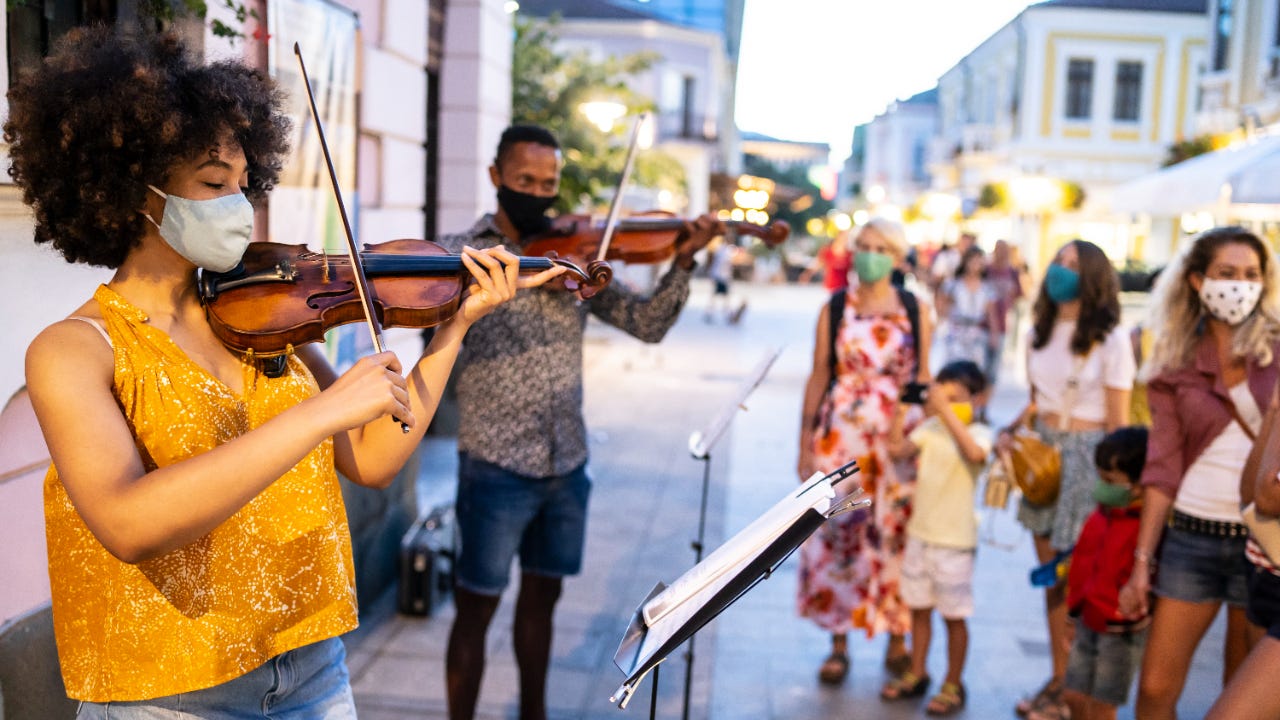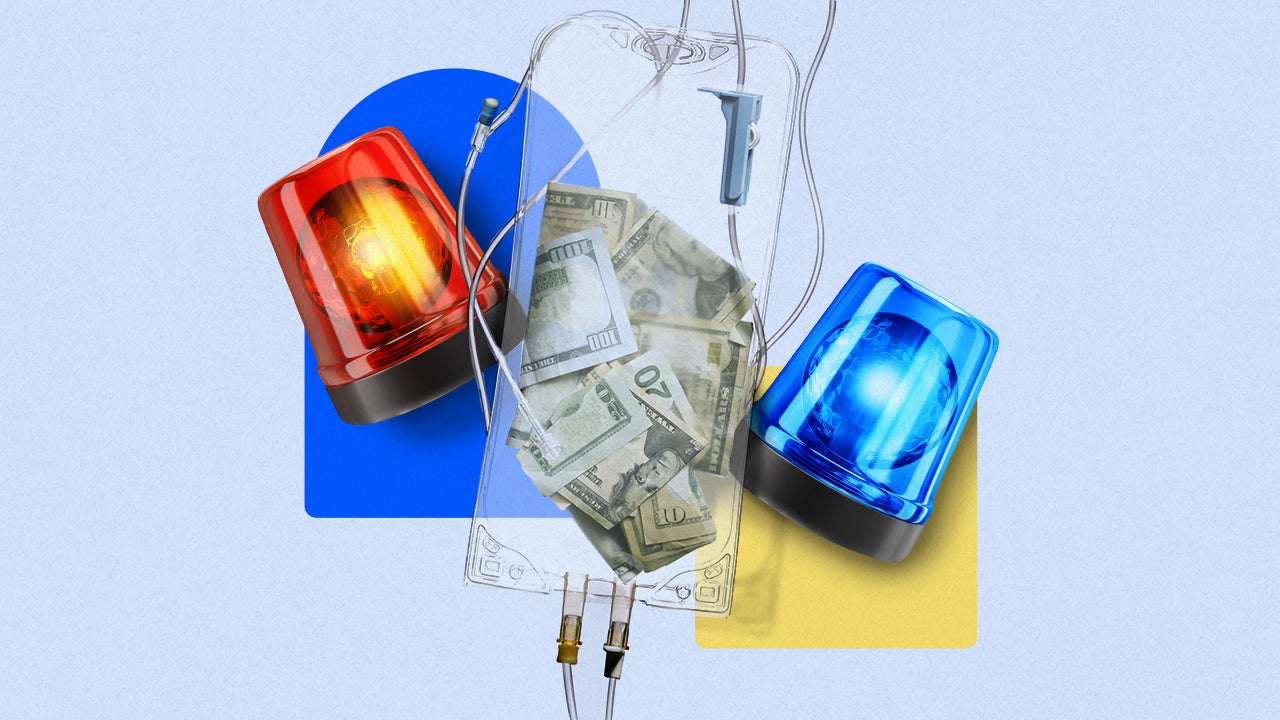What to expect when attending live events in 2022




The COVID-19 pandemic pulled the plug on live events for much of 2020 and 2021. It’s estimated that the live entertainment industry posted a $30 billion loss in 2020 alone due to the pandemic.
But as vaccination rates increase and the number of COVID cases, hospitalizations and deaths decline, events are slowly coming back. An October 2021 Bankrate poll found that 61 percent of Americans plan to attend a live event in the fourth quarter of 2021.
That doesn’t mean a complete return to normal, however. Entertainers are still canceling, postponing and reimagining live events. The Weeknd, for example, postponed a planned 2020 arena tour to June 2021, only to bump it to January 2022 and then summer of 2022.
Event-goers may be subject to new restrictions as well. On Oct. 4, 2021, Live Nation began requiring all artists, crew and event attendees to show proof of full vaccination or a negative COVID test from no more than 72 hours before the event. The Centers for Disease Control continues to urge mask-wearing for those who are not yet vaccinated and fully vaccinated individuals when indoors in areas with high COVID transmission rates.
If you’re itching to get back to attending live events, it’s essential to know what to expect and how to plan financially.
How COVID impacted the live entertainment industry
Live events haven’t been affected the same way across the board. Here’s a closer look at what COVID has meant for some of the most popular events.
Concerts
The Delta variant led many entertainers to rethink fall concert plans. Notable cancellations from 2021 include Stevie Nicks, Florida Georgia Line, BTS and the Backstreet Boys’ highly anticipated holiday residency in Las Vegas.
In terms of the COVID vaccine and testing requirements, it depends on the event. As mentioned, Live Nation requires full vaccination or a negative test to enter concert venues and festivals. Several large-scale music festivals, including Lollapalooza and Bonnaroo, announced testing or vaccination requirements to attend.
Artists can also impose COVID restrictions of their own, regardless of venue. The Jonas Brothers, Maroon 5 and Phoebe Bridgers are among the acts requiring a negative COVID test or proof of vaccination. For this reason, you should always check the official event website to be sure you have the proper documentation.
Without proof of vaccine or testing, you may be prohibited from entering the event or required to wear a mask to gain entry.
Sporting events
The COVID-19 pandemic took a heavy toll on sporting events, resulting in cancellations, postponements and shortened seasons for the NBA and major league baseball in 2020. The NFL kicked off its 2020 season as scheduled—but with limited-capacity seating. The NHL delayed the start of its 2020 season to January 2021, also reopening with limited capacity.
By mid-2021, every NFL team agreed to return to 100 percent capacity for the fall season. MLB teams also loosened capacity restrictions and the majority of NBA and NHL teams have currently planned a return to 100 percent seating. Many colleges have also resumed full capacity seating for athletic events.
As with live concerts, COVID testing and vaccination requirements can vary by sport, team or venue. In the NBA, for example, the Atlanta Hawks don’t require proof of vaccination or a negative COVID test. Masks are optional but encouraged. But if you want to watch the Chicago Bulls play on their home turf, you’ll need either a negative COVID test or proof of vaccination, and masks are required at all times unless you’re eating or drinking.
The MLB doesn’t require a negative COVID test or proof of vaccination and mask mandates vary based on state regulations. Meanwhile, some NFL teams and NHL teams still require full vaccination to enter the stadium.
Theater
On March 12, 2020, Broadway announced that it would close temporarily over rising concerns about the spread of coronavirus. What was planned to be a temporary shutdown extended until mid-September 2021.
The reopening has not been entirely smooth, however. “Aladdin” was notably shut down just one day after reopening after several breakthrough cases of COVID-19 were reported among the cast and crew.
If you want to attend a show on Broadway any time soon, you’ll need to be fully vaccinated. This rule applies to guests aged 12 and older, though this could be extended to younger attendees with the rollout of vaccines for five to 11-year-olds. For now, guests under 12 need to provide a negative PCR COVID test taken within 72 hours of the show’s start time or a negative rapid antigen test taken within six hours of the show’s start time.
Festivals
Festivals took a hit in 2020, with widespread cancellations including Coachella, SXSW and the Telluride Film Festival. Coachella, which had planned to return in October 2021, decided to push the event back to 2022. SXSW went virtual for 2021, with a planned return to a live event for 2022.
Whether you’ll need to show proof of vaccination, have a negative COVID test or wear a mask depends on the festival you plan to attend and state or local guidelines. For example, Coachella says it will require negative testing only for entry to the 2022 event. Burning Man, which is more community experiment than festival, is tentatively planned for 2022 after being canceled in 2020 and 2021, though no information about COVID requirements is available yet.
Races and fitness competitions
Marathons have also had to adapt in the COVID era. Some went virtual, with runners competing at different times and in different places all over the world. Some, like the London Marathon, limited participants to elite runners only. Others, like the Tokyo Marathon, have been postponed to 2022 over concerns about the Delta variant.
To protect the health and safety of runners, staff and attendees, many marathon organizers have opted to require vaccinations, negative testing, masks or a combination of all three. For example, the Boston Marathon required all runners to be fully vaccinated or test negative to participate in the 2021 run. Meanwhile, spectators are strongly encouraged to get tested for COVID before attending and wear a mask when social distancing isn’t possible. The Chicago Marathon said that it will adapt its COVID policy for the 2022 event to align with any state and local mask, testing or vaccination requirements that are in place at that time.
Conferences and tradeshows
Conventions, conferences and tradeshows also saw a flood of cancellations, postponements and virtual event replacements due to the pandemic. Some of the largest events affected included E3 Expo, San Diego Comic-Con, the New York Auto Show and the Consumer Electronics Show (CES).
In 2022, attending a convention, conference or trade show may mean showing proof of vaccination or a negative COVID test. For example, CES organizers have already announced that exhibitors and attendees need to be fully vaccinated to enter the 2022 event.
Planning for live events in 2022
Preparing for live events means considering the possibility of your plans being canceled or postponed. You’ll also need to plan for any vaccine or COVID-testing requirements you may need to meet.
How to prepare and protect yourself financially
Even with live entertainment returning, there are no guarantees that further postponements or cancellations won’t happen. So before you purchase tickets, it’s a good idea to check the event or venue’s refund and cancellation policy.
Some venues and ticket sellers have adapted their policies to account for COVID cancellations or delays. Live Nation, for example, automatically issues refunds if an event is canceled. If an event is postponed, rescheduled or moved, your tickets are still valid. You’ll get an email if the organizer is offering a refund. And if an event is postponed for more than 60 days with no reschedule dates, you’ll have a 30-day window to request a refund.
You should also be aware of the event or venue’s refund policies if you or someone you purchased a ticket for tests positive for COVID near the day of the event. The event organizers may be willing to offer a refund if you test positive—but that’s not always the case. That’s why it’s critical to read the fine print on refunds carefully while also understanding testing or vaccination requirements.
If you’re worried about cancellations or possibly needing a refund for a live event, you may want to charge ticket purchases to a credit card versus your debit card. If an event refuses to refund the money for a canceled event, you may be able to dispute the charge with your credit card company.
Charging event tickets to a credit card can also yield another benefit: credit card rewards, like points, miles or cash back. You could redeem any rewards you earn as a statement credit, which is effectively like getting a discount on your purchase. Plus, many of the best metal credit cards offer boosted rewards rates on travel and dining, two expenses that often accompany live events.
The bottom line
Attending a live event may not look the same now as it did before the start of the pandemic. And the live events industry faces some lingering uncertainty over future pandemic impacts. But the horizon is clearing and you can still have a good time at your favorite events—and protect your bottom line—with some careful planning.




